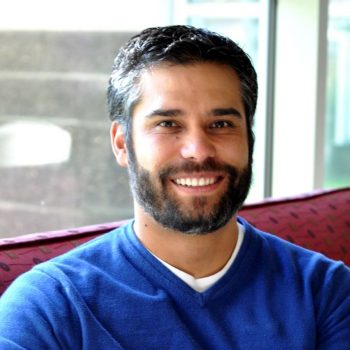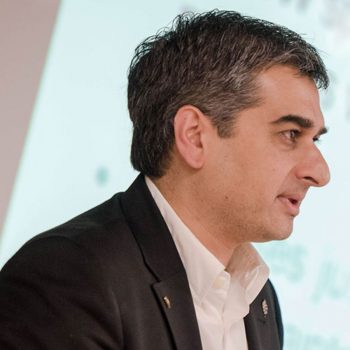Help your campus do better. Get practical take-aways for your organization.

The number of depression, anxiety, and suicide attempts among students are increasing at post-secondary schools across the country. As college and university administrators, you have a responsibility to ensure that you cultivate an environment that promotes health and well-being and effectively responds to campus needs. This conference will bring together higher education administrators to share workable solutions for creating healthy campuses and communities. Online resources will also be made available to be shared back to their respective organizations.
- Addressing Student Suicides on Campus While Respecting Privacy Concerns
- Evaluating the Effectiveness of Your Mental Health Initiatives
- Developing and Leveraging Community Partnerships
- Building Well-Being into Campus Life
- Creating Policy and Establishing Initiatives that Prioritize Diversity and Inclusion
- Cultivating a Community of First Responders
Administrators from colleges and universities in Canada:
- Office of the President
- Dean of Students
- Student Services and Affairs
- Legal and Compliance
- Health and Wellness
- Counselling
- Safety and Security
- Housing
- Athletics and Recreation
- Accessibility Services
- Human Resources
- Equity and Inclusion
8:00 am – 9:00 am
Registration and Continental Breakfast
9:00 am – 9:05 am
Welcome and Opening Remarks from the Chair
9:05 am – 10:00 am
The Perception and Reality of Mental Health in Post-Secondary Institutions: Through the Looking Glass
- Discuss the complex relationship of reality and identity within individual, institutional and societal perceptions, and the overarching impact on student mental health.
- Explore general principles in addressing the increasing mental health needs of students on campuses
- Within a biological, psychological and social context outline current and future mental health strategies to increase resiliency and academic and personal success for students.
- Review how to increase the early identification of mental health problems, ensure timely access to evidence-based care and provide a strong circle of care for all students on campus.
10:00 am – 10:15 am
Networking Refreshment Break
10:15 am – 11:15 pm
Waiting for the Great Leap Forward: Ideas for Change in Campus Mental Health Systems
- Learn how urgent care centers provide an alternative framework for access and mental health service delivery on campus
- Examine the viability of same day access, 25 minute sessions, an immediate treatment orientation, and as-needed follow up options in college counseling centers
- Focus on the implementation process for this system, including working with staff and students as partners for change.
11:15 am – 12:00 pm
Survivor-Centered Response to Disclosures
- Realize the significance of a supportive versus a negative response to disclosure
- Understand and counter commonly held myths about sexual violence in order to ensure a supportive response
- Present how a supportive response to a disclosure of sexual violence is strongly influenced by context, and the lived experiences of both survivors and responders can significantly impact what makes for a supportive or unsupportive response
- Train people to recognize their own power and privilege as well as the potential barriers experienced by people of various social locations relating to gender identity, race and indigeneity, class, culture, disability and sexual orientation
- Clarify how some social groups are disproportionately affected
12:00 pm – 12:45 pm
Networking Luncheon
12:45 pm – 2:05 pm
PANEL DISCUSSION: How Post-Secondary Institutes Can Work with Students, Families and Community Partners to Detect, and Intervene Suicidal Behaviour and Manage Postvention Crisis?
- Recognize the complexity, challenges and opportunities present themselves simultaneously
- What specific factors, signs and symptoms, and cultural factors, as available evidence demonstrates, are associated suicidal behaviour of post-secondary students. How post-secondary institutes can detect and intervene early? When and where the privacy of health records trumps safety concerns?
- What set of best or promising guidelines PSI can follow after a student’s death by suicide that facilitate campus community to grieve including following debriefing to relevant staff, students and faculty. How family’s desires for degree of privacy can be handled, while exercising cultural sensitivity. What steps can be taken to reduce the risk of contagion (a series of suicide related events), and how to provide media accurate and appropriate information
- How stereotypical beliefs within various cultural contexts such as shame, guilt, face saving, perceived moral failure and fear of being ostracized by cultural community, associated with suicide can be reduced to increase help-seeking behaviour among post-secondary students?
2:05 pm – 2:15 pm
Networking Refreshment Break
2:15 pm – 3:00 pm
Building Well-Being into Campus Life
Student enrollments are increasing. The prevalence of mental health issues is rising. We are expected to do more with less. Many of us have challenges with limited resources and barriers around financial sustainability, yet we are still expected to support all students and staff well-being. What can be done to ensure our students receive the support they need/expect? How can we transform our campus environments to meet the ever-growing demand to support well-being and ultimately help students be successful academically? Join the conversation to answer these questions and more.
3:00 pm – 4:00 pm
Making the Case for a Full-Campus Approach to Mental Health
The Centre for Addiction and Mental Health (CAMH) is Canada’s largest mental-health and addiction academic teaching hospital and one of the early adopters of the National Standard for Psychological Health and Safety in the workplace. With the newly developed Standard for Post-Secondary Students projected to be launched in early 2020, CAMH can begin supporting academic institutions using a ‘full campus’ integrated approach model to support student and staff mental health in efforts to promote student and institution success.
In this case study, we present a consulting partnership between CAMH and an Ontario College to design and develop a Healthy Initiative Strategy, encompassing holistic elements of wellness, for both students and staff. Case information will include:
- Provide research on post-secondary students mental illness and addiction
- Identify the process involved in the needs analysis and design
- Identifying the development of goals and priorities
Venue Details:
Courtyard by Marriott, Downtown Toronto | 475 Yonge Street | Toronto, ON M4Y 1X7
Reservations: (866) 847.5075 • T: (416) 924.0611
* Please contact info@birchmountgroup.com should you require hotel recommendations at different price points.
Over and above, a very timely and important topic, great cross-section of speakers, well-organized.
This conference was a great opportunity to help broaden the national conversation on such an important issue.
Well-researched agenda. Good pace. In just 2 days, I acquired a year’s worth of knowledge.













